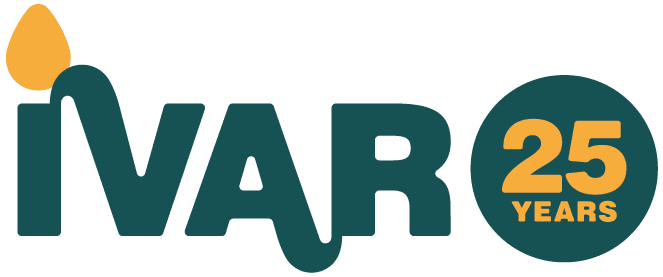IVAR is committed to embedding Equity, Diversity and Inclusion (EDI) into everything we do. We are making progress on this journey but recognise that there will always be further to go. As an action research organisation, we are used to working in a way that is iterative, collaborative and developmental. Our approach to EDI is no different.
How we are using these terms
Equity means recognising diversity and that everyone has different starting points. It is about social justice, ensuring that everyone has access to the same opportunities and is supported to achieve their potential.
Diversity is about recognising, respecting and valuing differences between people. We use diversity to include differences in: background; identity; culture; gender; ability; ethnicity; experience; opinion.
Inclusion means working to ensure people from different backgrounds, experiences and identities feel welcomed, respected and fully able to participate in our work.
We’ll keep reflecting on these terms and what they mean for how we work with individuals across our work in different contexts.
In 2021, we made three commitments to embedding EDI:
- Further work to diversify our people to reflect the communities we work with and support across the UK.
- Embedding EDI into our project selection and design processes.
- Extending our network of partners to create opportunities for more diverse groups to participate in IVAR projects, as well as find and use IVAR resources.
Why do these changes matter to us?
The aim of our research is to ensure people’s voices are heard in a way that reflects their experiences. There is a current imbalance of voices and this needs to be addressed. We want to bring in more voices in an authentic way, letting people speak for themselves wherever possible.
What we have done so far
Our people
Our people are at the heart of everything we do – we need a diversity of experiences and perspectives to be able to respond responsibly and meaningfully to the context in which charities operate.
We have recruited new trustees, staff and associates to help create a team that better reflects the diversity of the communities we seek to serve. To do this, we were explicit about our intentions, worked with our partners and used open recruitment (e.g. for trustees and associates) where we haven’t before.
Our processes
- Internally, we have created spaces for informal discussion about what it means to work with an EDI lens at IVAR and become more comfortable with having uncomfortable conversations.
- We have adapted research design and delivery processes, which means:
- Paying attention to access, inclusion and power dynamics at every stage of a project. We ask questions (of ourselves and others) about who is in the ‘room’ and whose voice – or voices – need to be heard.
- Continuing to live true to our action research roots – we are not ‘the experts’; we provide processes to help people define, understand and respond to issues/problems (e.g. Leading in Uncertainty); and some form of participation is built into all of our work (e.g. Open and Trusting Grant-making, and Connecting Health Communities).
- Cultivating a culture of reflection that allows us to challenge our assumptions and be open about the limits of our knowledge and understanding.
- Operating with reciprocity and respect – recognising that individual and charity participants bring knowledge and expertise that we don’t have and making contributions to recognise this. Alongside financial compensation, we continue to explore creative approaches to this.
- Building time and resource into our projects – including budgets – to enable us to embed EDI meaningfully.
- Developing new partnerships and projects with and for individuals, groups and communities with whom we may previously not have engaged. You can read more about what we are currently working on here.
Next steps
We recognise it won’t always be easy. There are barriers that sometimes hinder our progress, for example, the money, time and resources required. There are also emotional barriers; sometimes it’s hard to ‘rock the boat’ and have difficult conversations. But we are committed to this journey and equipping our team to overcome the challenges we encounter.
We are working on:
- How we use our voice – particularly through blogs and social media – to strengthen the sector and to make our thinking visible; you can read more about this in our recent blog How to use learning questions.
- How to raise the profile of research in the sector that is led by people from minoritised communities.
- Convening diverse, cross-sector groups to discuss and debate specific aspects of our work and/or issues affecting the sector.
